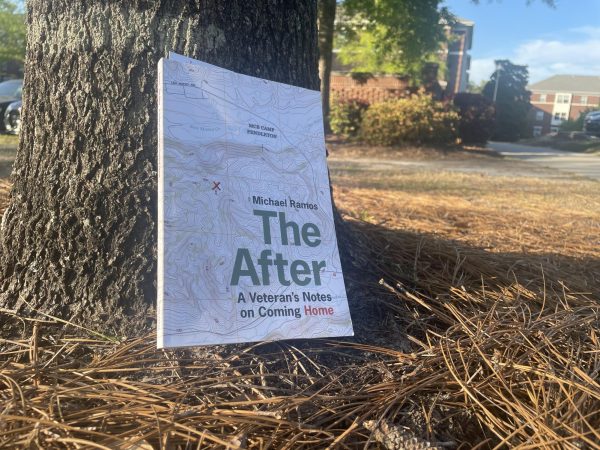REVIEW: Dr. Dog’s New Release Gets Lost in the Void
February 22, 2012
The psychedelic rockers of Dr. Dog have done it again… and again and again. The band is consistently accused of putting out the same bright harmonies and head-bopping melodies that satisfy at first, but tend to quickly get old. “Be the Void” is their seventh studio album, and while their boisterously imperfect sound certainly has not gotten any worse, it has not gotten significantly better either.
The band’s 1960s and 1970s influences like the Beatles and the Stones are as apparent as ever in the new album’s pop meets indie meets classic rock vibe, but they do not attempt to do anything new with their predecessors’ style. The band has flatlined themselves into a stagnant pool of catchy songs that, despite their predictability, are still ear-pleasers.
“They’re shameless imitators whose quirky, lo-fi brand of psych pop never steps out of the shadows of the band’s extremely obvious influences,” said Pop Matters’ Daniel Tebo.
For Dr. Dog’s sixth album “Shame, Shame,” they joined forces with producer Rob Schnapf, to whom many critics credited the album’s success. This time around, the band left themselves to their own devices and it did them not a bit of good. Dr. Dog’s saving grace is that they play a loud and passionate live performance, with even less attention to perfection that makes up for some of their studio slip-ups.
“It’s their tightest and simultaneously most experimental release, incorporating Afro beat elements and intensifying the psychedelia that used to meander somewhat aimlessly through the band’s earlier material. Despite these efforts, “Be the Void” still suffers from lyrical paucity and by-the-book throwbacks. Dr. Dog may keep getting better, but until the band fixes these continual sticking points, they’ll forever be stuck,” said Consequence of Sound’s Harley Brown.
“They’ve never been ace lyricists, but I do miss the neighborly, come-grab-a-beer vibe of their ‘We All Belong‘era; here, they seem to be going for some kind of vagueness-as-profundity business that rarely gets its point across. ‘Let’s just clear the air,’ McMicken sings on ‘Over Here, Over There,’ before adding ‘I am over here, I’m over there.’ This clears nothing, McMicken!” said Pitchfork’s Paul Thompson, elaborating on the lack of lyrical expressiveness that Brown hit upon.
To their credit, though, the album opener- “Lonesone-” is an anthem of sorts in which a resounding chorus of voices asks, “what does it take to be lonesome?” and in response, lead guitarist and vocalist, Scott McMicken, seductively drawls his reply, “nothing at all!” The song is on the twangy side, but in the sugary-sweetest way possible. “Lonesome” also features newest addition to the band, drummer Dimitri Manos, and the percussions march the song in a cheerily homespun way.
“At the risk of getting all ‘Retromania‘ on you, it’s no crime in and of itself that Dr. Dog borrow liberally from the past; their trouble lies in what they do with the stuff. The answer, seven albums in? A resounding ‘let it be,'” concludes Thompson.





















